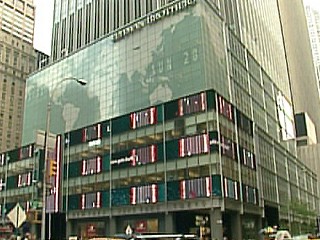
On the morning of Saturday, Sept. 13 last year, Treasury Department official Tony Fratto was talking to a friend of his at a major New York City investment firm. The offices at every big bank in the city, Fratto's friend told him, were packed with staffers trying to figure out their firms' counterparty risk to Lehman Brothers. "To me, that was just jaw-dropping," Fratto said.
The legendary investment bank had been teetering on the brink of collapse for months. To think that banks were only now scrambling to assess their vulnerabilities to Lehman was, Fratto felt, "staggering."
Two days later, on Sept. 15, Lehman went bankrupt. Just like that, the world had changed.
Lehman's failure rocked the financial system to its core, sending shockwaves around the world and sparking a global crisis that can still be felt today.
In his address to Congress last week, President Obama said confidently, "We have pulled this economy back from the brink."
On the eve of the one year anniversary of Lehman's bankruptcy, a look at the past year provides insight into the present economic environment ... and what lies ahead in the future.
Politics
After Lehman Brothers collapsed, the financial system fell into a state of fear and panic.
"Over the course of 20 years, the financial system had become bigger and much more risk-loving in a way," said Simon Johnson, professor at MIT and senior fellow at the Peterson Institute. "Sept. 15 is when we woke up to the dangers."
With the system in shambles, the economy started its descent into the deepest recession since the Great Depression.
0 comments:
Post a Comment